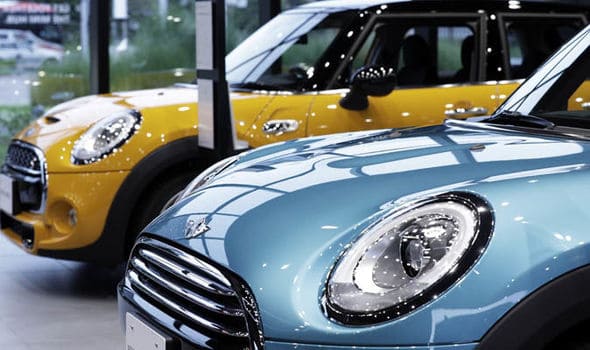
DEPRECIATION is the enemy of the new car buyer, as it erodes the value of your purchase the moment you drive it off the forecourt. A new car instantly loses around 20 per cent of its value and will continue to lose another 15 to 20 per cent every year after that.
Within five years, even the slowest depreciating cars will have lost half of their value, while the fastest are down two thirds.
If you are buying a new car in March, with the new plates, consider depreciation when deciding what make is right for you.
THE D-WORD
Among Britain’s top 10 bestselling new cars, the Ford Fiesta depreciated at the fastest rate, with the Mini Cooper holding its value best, according to new research from InsureTheGap.com.
If you bought a Ford Fiesta 1.4 three-door hatchback five years ago it would have lost 65 per cent of its value by now.
You would typically have paid £12,175 in 2013, but today it would fetch just £4,320, a loss of almost £8,000.
It is closely followed by the Vauxhall Corsa 1.4 three-door hatchback, which has lost 64 per cent of its original value, falling from £15,940 in 2013 to £5,660 today.
The third fastest depreciating car is the highly popular Ford Focus 1.6 five-door hatchback, which fell 62 per cent from £15,830 to £5,980.
The Vauxhall Astra fell 61 per cent from £14,750 to £5,750.
The most expensive car in the study, a Mercedes C-class saloon, fell fifth fastest from £27,740 to £11,350, a fall of 59 per cent, costing the buyer a massive £16,390.
At the other end of the scale, the VW Polo hatchback depreciated by 51 per cent from £12,900 to £6,390, while the Mini Cooper fell “just” 49 per cent from £18,005 to £9,240.
MIND THE GAP
Ben Wooltorton, chief operating officer at InsureTheGap, said a number of factors determine the depreciation rate: “Some apply to all vehicles, such as mileage, number of previous owners, service history, general condition and colour.
“Others are down to the make and model’s reliability, safety, and reputation.”
Depreciation is a concern if you buy your car using a finance package, because if it is stolen or written off the payout from your insurance company may not be enough to cover the outstanding balance on your debt agreement.
You can plug this with a guaranteed asset protection (GAP) insurance policy, starting from around £60 a year.
NICE LITTLE RUNNER
Simon Ackers, chief executive officer of Warranty Direct, said fuel type and mileage can have a significant impact: “Typically, diesel cars are more economical and depreciate less but the gap is closing as petrol engine efficiency improves.”
Depreciation is harder to determine with the new breed of electric and hybrid vehicles, but this should improve over time.
Ackers added: “As a general rule, the bigger the car, the higher the running and maintenance costs, and the greater the depreciation.”
TAKE GOOD CARE
Maintenance is key, so keep a full service history to illustrate your motor’s reliability to future buyers.
“Damaged bodywork and interiors will decrease value, as will worn out engines that have been aggressively driven,” Ackers said.
Modifications such as spoilers and flared wheel arches are less desirable in the second-hand market, although sat-nav, leather seats and air-con may be valuable.
He suggested considering a nearly-new car: “An eight to 10-year-old car can hardly depreciate much more, but weigh this up against higher repair costs.”
Leasing is another option, although the cost of depreciation will be reflected in your payments.
Depreciation is a fact of life, there is only so much you can do to drive down the cost.
